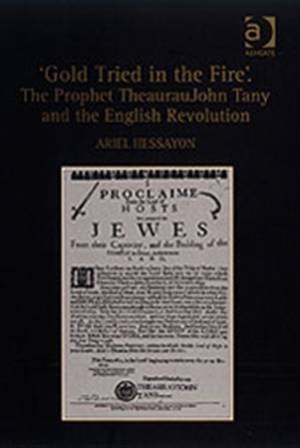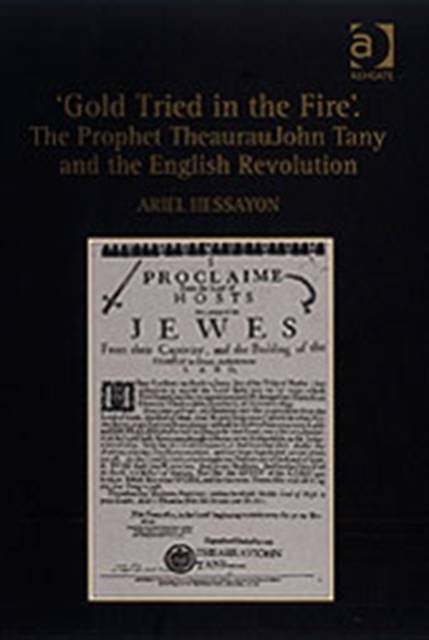
- Retrait gratuit dans votre magasin Club
- 7.000.000 titres dans notre catalogue
- Payer en toute sécurité
- Toujours un magasin près de chez vous
- Retrait gratuit dans votre magasin Club
- 7.000.0000 titres dans notre catalogue
- Payer en toute sécurité
- Toujours un magasin près de chez vous
'Gold Tried in the Fire'. the Prophet Theauraujohn Tany and the English Revolution
Ariel Hessayon
Livre relié | Anglais
202,95 €
+ 405 points
Description
This is a study of the most fascinating and idiosyncratic of all seventeenth-century figures. Like its famous predecessor The Cheese and The Worms: The Cosmos of a Sixteenth-Century Miller, it explores the everyday life and mental world of an extraordinary yet humble figure. Born in Lincolnshire with a family of Cambridgeshire origins, Thomas Totney (1608-1659) was a London puritan, goldsmith and veteran of the Civil War. In November 1649, after fourteen weeks of self-abasement, fasting and prayer, he experienced a profound spiritual transformation. Taking the prophetic name TheaurauJohn Tany and declaring himself 'a Jew of the Tribe of Reuben' descended from Aaron the High Priest, he set about enacting a millenarian mission to restore the Jews to their own land. Inspired prophetic gestures followed as Tany took to living in a tent, preaching in the parks and fields around London. He gathered a handful of followers and, in the week that Cromwell was offered the crown, infamously burned his bible and attacked Parliament with sword drawn. In the summer of 1656 he set sail from the Kentish coast, perhaps with some disciples in tow, bound for Jerusalem. He found his way to Holland, perhaps there to gather the Jews of Amsterdam. Some three years later, now calling himself Ram Johoram, Tany was reported lost, drowned after taking passage in a ship from Brielle bound for London. During his prophetic phase Tany wrote a number of remarkable but elusive works that are unlike anything else in the English language. His sources were varied, although they seem to have included almanacs, popular prophecies and legal treatises, as well as scriptural and extra-canonical texts, and the writings of the German mystic Jacob Boehme. Indeed, Tany's writings embrace currents of magic and mysticism, alchemy and astrology, numerology and angelology, Neoplatonism and Gnosticism, Hermeticism and Christian Kabbalah - a ferment of ideas that fused in a millenarian yearning for the hoped for
Spécifications
Parties prenantes
- Auteur(s) :
- Editeur:
Contenu
- Nombre de pages :
- 504
- Langue:
- Anglais
Caractéristiques
- EAN:
- 9780754655978
- Date de parution :
- 23-10-07
- Format:
- Livre relié
- Format numérique:
- Genaaid
- Dimensions :
- 156 mm x 233 mm
- Poids :
- 834 g

Les avis
Nous publions uniquement les avis qui respectent les conditions requises. Consultez nos conditions pour les avis.






